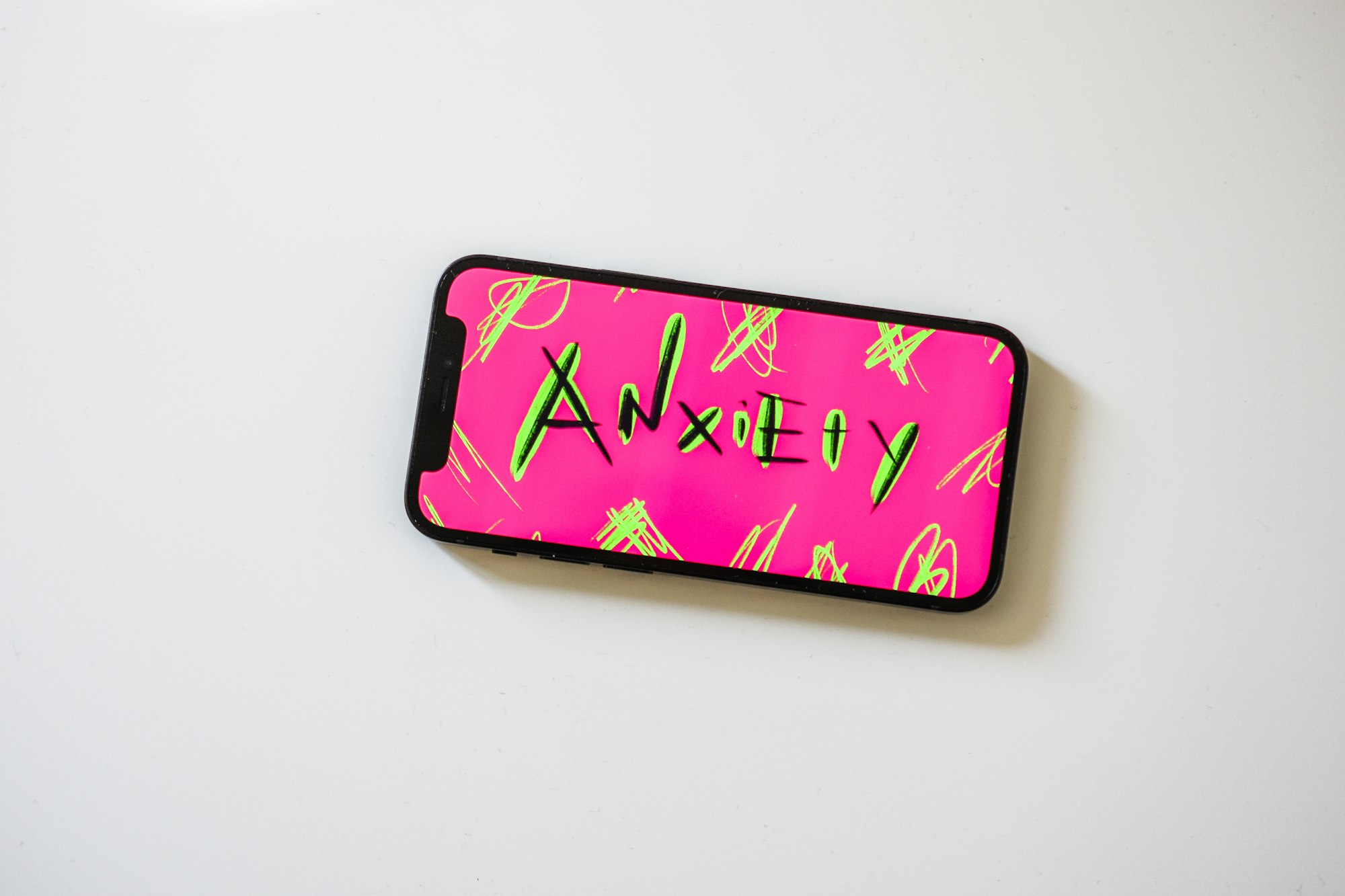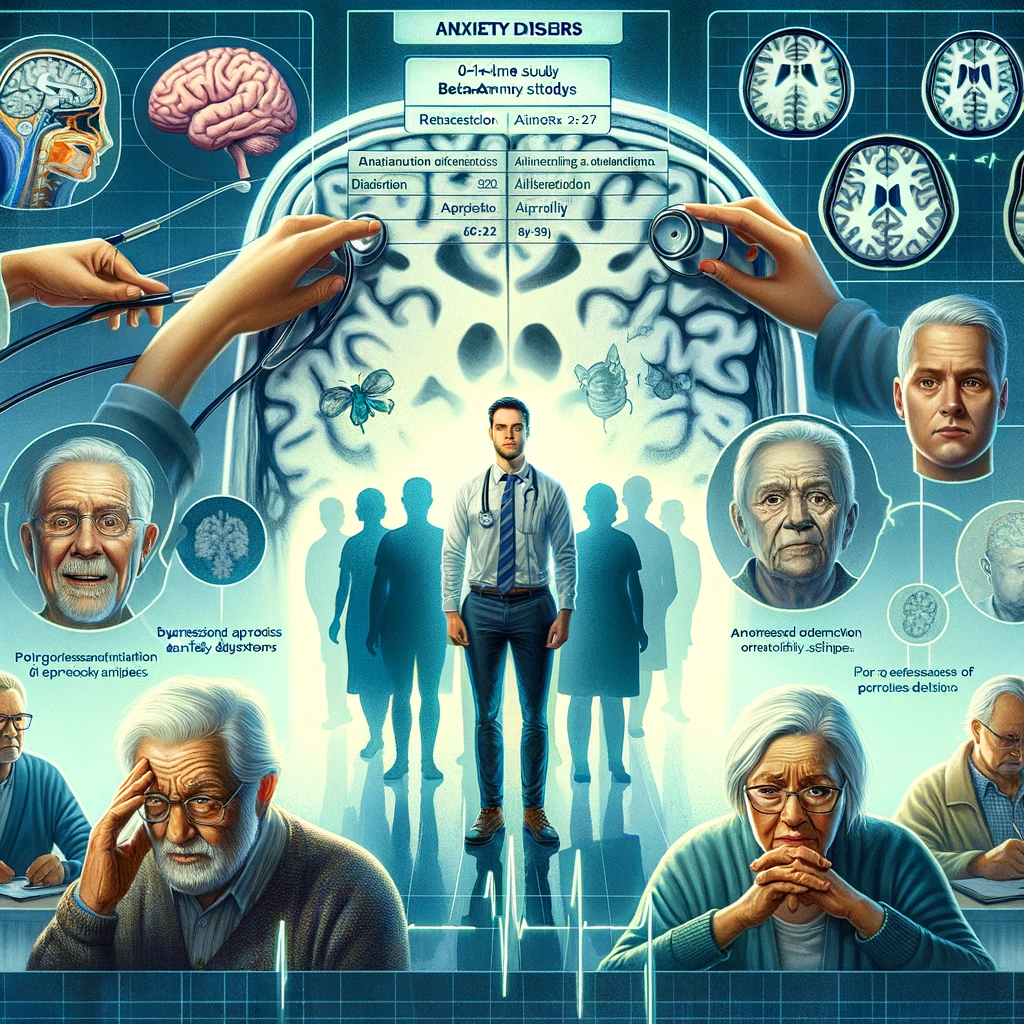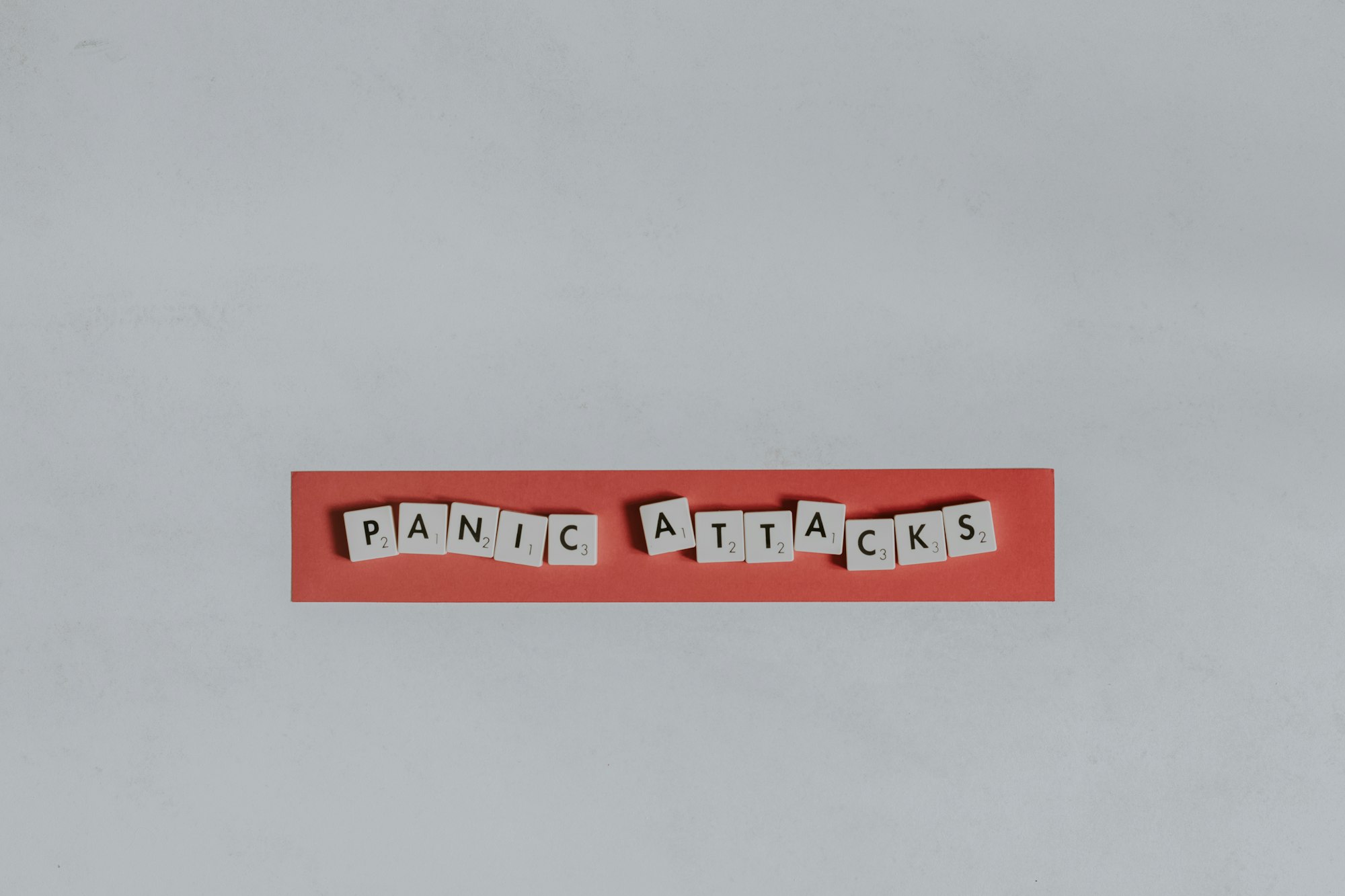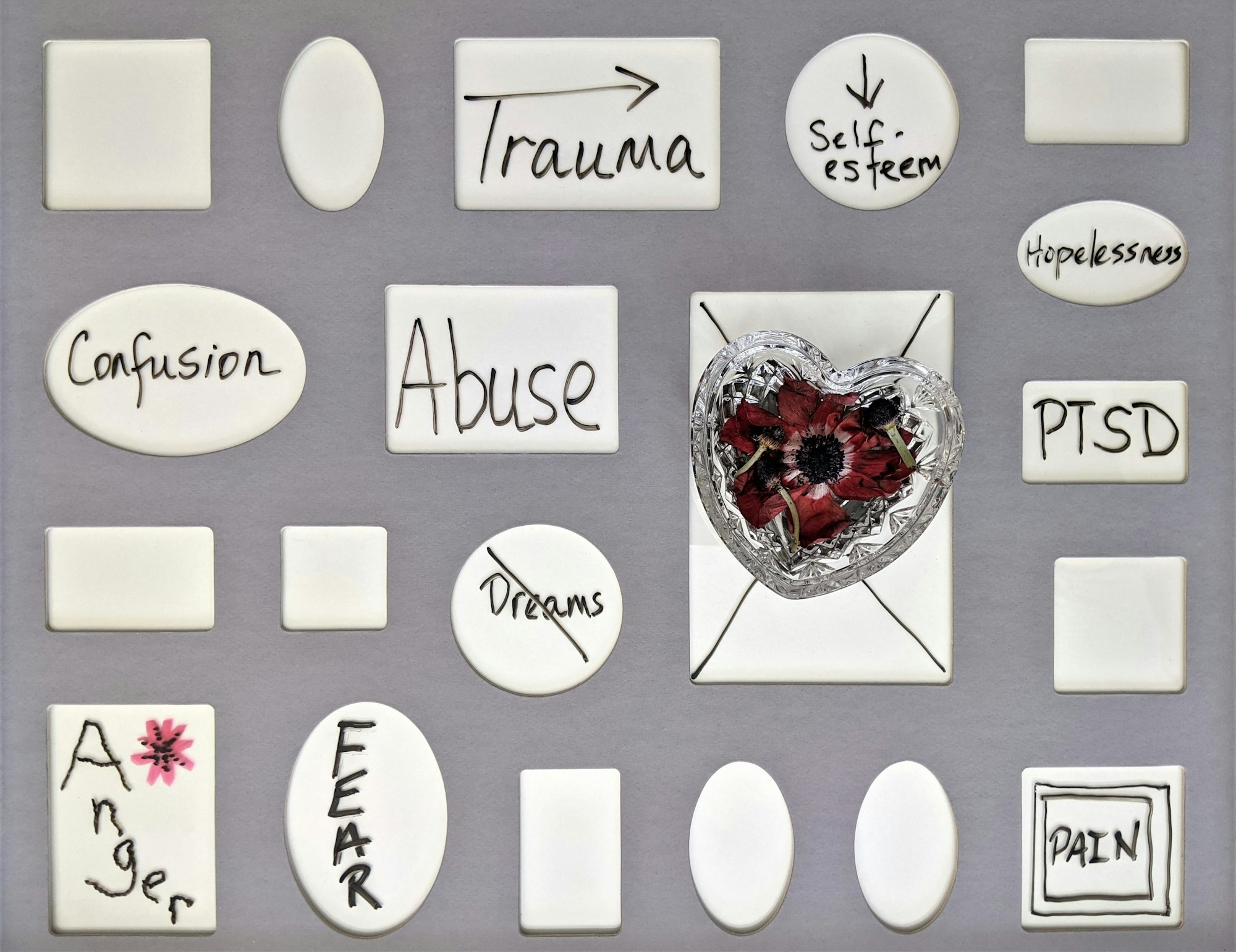Is Anxiety a Very Early Symptom of Alzheimer's?
Are you concerned about your anxiety symptoms? According to a groundbreaking study, worsening anxiety may actually increase your risk of developing Alzheimer's disease.

We all can relate to the TV characters that have different types of anxiety disorders. From Doctors like Bones, aboard Star Trek's Enterprise, whose worry-prone personality helps keep everyone safe to beloved children’s character Piglet whose anxious tendencies lead him into a number of stressful situations; anxiety doesn't necessarily have one ‘look’ - just emotions that many viewers will understand.
As with Bones, he went from being concerned to worrying about everything. The character Sherlock Holmes likes things a very particular way. He has an a few obsessive compulsive disorder traits. . When Sherlocks routine is interrupted he acts out. This is a common trait for many with an anxiety disorder. Individuals that suffer from anxiety, do not like their way of life interrupted. Sherlock Holmes is a very relatable character for many with anxiety disorder symptoms. But Sherlock does have personality traits that venture into the extremely hard to get along with territory.
Of course, Piglet's intense anxiety makes him an iconic figure in children’s literature. This beloved character shows just how much excessive anxiety can impact everyday life. Piglets reliance on friends for support teaches us about the importance of connection and community when fighting such battles - a lesson that stands true not only for those living with anxieties similar to Piglet but also other Disney characters sharing his affliction.

Anxiety affects everyone differently
My point here is,anxiety affects everyone differently, making it hard for those who don't suffer from anxiety to understand its severity. It's not something someone can just "get over" — instead, acknowledging and expressing the feeling of being anxious is often a way that people find relief from their symptoms.
To illustrate this better: if you're struggling with an anxiety disorder, it might feel like an uncontrollable force has swooped in and taken over your thoughts, leaving you with feelings of doubt This only serves as proof that having empathy towards loved ones suffering from anxiety disorders is essential when supporting them on their journey through mental health struggles!
Do you struggle to manage daily anxiety?
As if managing daily anxiety wasn't challenging enough for the 50 million adults across America living with it, a recent study indicates that those suffering from worsening anxiety symptoms may be more at risk of developing Alzheimer's disease. Researchers observed higher levels of beta-amyloid protein in the brains of older individuals with anxiety disorders. These plaques and tangles are associated with Alzheimer's disease have been found to block nerve cell communication in the brains of people with Alzheimer’s.
It is believed that the symptoms of Alzheimer's disease start as early as 20 years prior to a diagnosis. According to the new study published in 2018 January edition of The American Journal of Psychiatry, a recent study indicates that those suffering from worsening anxiety symptoms may be more at risk of developing Alzheimer's disease.
Although there are many possible factors contributing to such diseases, being mindful and taking preventive measures against escalating worries can help protect your future mental health.

Anxiety disorders and Alzheimers disease
There is a new school of thought on how targeting anxiety disorders be a way to help slow the progression of Alzheimer's disease? This recent study has strongly suggested so.
The study included 270 adults aged between 62-90 with normal cognitive function. The researchers analyzed the levels of beta-amyloid in brain scans . They then assessed symptoms of depression and anxiety in each participant. They used the 30 item Geriatric Depression Scale to quantify the results.
The results showed that those who had higher levels of beta amyloid were also more likely to have been diagnosed with either depression or anxiety disorders.
It seems that the longer adults experienced symptoms of anxiety, the higher their levels of beta-amyloid in brain scans - a possible indicator for Alzheimer's.
Therefore its important monitor your mental health. So let's talk about how you can take steps towards reducing stress, managing your emotional well being and monitor your anxiety as part of a dementia prevention program.
Understanding the difference between feeling anxious and having an anxiety disorder
It's natural and normal to experience the occasional anxiety, like when preparing for a big presentation or making a life-changing move. Anxiety is a normal response to stress.. It is important to remember that these fleeting moments that trigger anxiety, should not be confused with more persistent forms of mental disorders such as Generalized Anxiety Disorder (GAD).
The Mayo Clinic explains how Generalized Anxiety Disorder can interfere in someone’s daily life. They may experience an inability to function because of extreme fear and worry. These feelings may trigger panic attacks at their peak intensity.
When sharing your own experiences of the symptoms of anxiety, you might have encountered people who downplay the negative impact that disorders have on our lives. Individuals that do not suffer from an anxiety disorders do not know what it feels like day after day.
Remember: while we all go through moments of occasional anxiety. If the emotional and physical symptoms become a routine response to daily events, then seeking support from a mental health professional could help you prevent developing Alzheimer's disease, as well as overcome your anxiety disorder.
Let's talk about the different types of anxiety disorders. Many feel anxious and those feelings are an everyday reality for many of us. In this audio cast , we'll cover what causes anxiety and how you can recognize when anxiety has become a disorder.
We'll also go through coping strategies that can help relieve symptoms while providing much-needed anti anxiety prevention techniques. From understanding medical definitions to recognizing the physical symptoms of anxiety such as sweating or a rapid heart beat.
Let’s take a dive into solutions that will address your anxiety disorder as well as put a dementia prevention plan in place.

What is anxiety?
I want to start by defining what is anxiety as determined by health professionals. We've all felt anxious in our lives, whether it's due to a looming deadline or an upcoming presentation.
Anxiety has far more effects than just worry and nervousness; physical changes such as increased heart rate and sweating are common symptoms of this condition. As the American Psychiatric Association states, there might be signs you should look out for if your level of anxiety feels abnormally heightened. So remember that even mild worries can have real impacts on both body and mind!
Causes of anxiety disorders
Worries about the future and fear of dangerous or threatening traumatic events are often common causes for feeling anxious.
Other potential causes of anxiety:
Substance abuse is one such cause that can lead to symptoms similar to those experienced with anxiety disorders. This is true when a person experiences withdrawal from illegal substances like opioids or prescription drugs. They may become nervous and have panic symptoms such as difficulty concentrating , rapid heart beat and s as part their withdrawal process--be mindful of this risk factor when managing your overall mental health!
Genetics can play a role in an individual's risk factors to developing an anxiety disorder. This can potentially lead to mental health problems if not addressed.
On the other hand, psychological issues cause mental disorders such as a social phobia. Some may have repressed thoughts from an early childhood event that could be contributing factors. They may have a higher sensitivity towards stress . Some will view anxiety-provoking situations like being around others or being afraid of heights or have other specific phobias.
It is important that the sources that cause anxiety are assessed so appropriate treatment options may help provide relief from the mental health disorders experienced throughout life.
Chemical Imbalances in the brain can be responsible for developing anxiety disorders. Anxiety is a wide-ranging condition that can stem from many different sources. Unfortunately, some physical health conditions may even manifest with changes to brain chemistry and require treatment in order for individuals to experience full recovery.
Situations that can trigger anxiety, such as the death of someone close, interpersonal conflicts, coffee or other stimulants like cocaine use, physical injuries and stressful environments are just several common causes. However everyone experiences anxiety differently. So there's no single definition will fit all scenarios!

Be mindful of potential triggers to manage you anxiety disorder
It's important to be mindful of these potential triggers if you're looking for ways manage your recurring anxiety disorder better. The best course of action would be to start talk therapy with a mental health professional to identify your triggers and start a personalized treatment plan of care as part of your dementia prevention program. Remember treating your anxiety disorder can also help to delay or prevent the development of dementia.
Although anxiety can be caused by many factors, it becomes an anxiety disorder when more severe episodes are triggered. Chemical changes in the brain make this type of prolonged condition possible to occur. People who suffer from an generalized Anxiety Disorder have very low tolerance for stress or have an another specific phobia.
Types of anxiety disorders
Separation Anxiety Disorder is felt when someone finds themselves being separated from loved ones, pets or another element they consider essential in their life . This is particularly common in children dealing with parents moving away or traveling without them.
Selective mutism is a serious anxiety disorder that can leave individuals unable to communicate in particular social environments or when around specific people. Selective mutism is an incredibly difficult condition. With the right help and support it doesn't have to be something someone has to live with forever.
A phobia can be a trigger for developing an anxiety disorders. Specific phobias can be irrational fears of seemingly harmless elements that cause a person intense anxiety and physical symptoms. Those suffering with a specific phobia experience an intense fear to their feared object or situation. The good news is these feelings are usually temporary! Once the object or situation is removed, the symptoms and intense fear fade.

Struggling to confront your fears?
Exposure therapy may be the answer! This psychological treatment has been developed and scientifically proven to help people face their fears. It works by exposing individuals in a safe environment, helping them break away from avoidance patterns over time as they become more comfortable with feared objects or situations. If you're feeling overwhelmed by fear - consider seeking out exposure therapy for long-term relief.
Are you living with a fear of being constantly judged or watched by others? You may be suffering from social anxiety disorder, This was previously called social phobia. This is a very real and difficult condition that won't go away without help! Medications and talk therapy can help to improve the situation. It's important to speak up about your struggles if you're feeling overwhelmed.
A Panic disorder is another anxiety disorder
It is characterized by fear and symptoms like chest pain, shortness of breath and rapid heartbeat. A panic attack can occur at any time. And at the most unexpected times. I have been in the ER when a patient would come in, thinking they were having a heart attack or even a stroke, when they were actually experiencing a panic attack.
Other anxiety disorders include:
Agoraphobia is another phobia that develops into an anxiety disorder. It involves a heightened sense of danger when in open spaces or around crowds. people that have agoraphobia have difficulty leaving their home and anxiety symptoms worsen at even the thought of leaving the house. I had an great aunt that did not leave her home for over 40 years. Since COVID, we are seeing more people suffering from agoraphobia.
Generalised anxiety disorder causes persistent feeling anxiety even if there’s no immediate reason to feel so. It can interfere with daily activities making life difficult for those people with anxiety disorders.
Those suffering with Obsessive-Compulsive Disorders typically experience a combination of intrusive thoughts and behaviors which can be overwhelming. The thoughts are known as obsessions. The resulting behaviors or rituals to reduce anxiety caused by those thoughts is referred to as compulsions.

Post-traumatic stress disorder is another anxiety disorder. It is often the result of a traumatic event that leaves an indelible mark on someone. - such as sexual abuse, returning from service in a warzone or being victim of terrorism.
Its symptoms can be intense and bring back the memory of a traumatic event through everyday triggers; leaving sufferers feeling trapped in their own pasts. Help for individuals dealing with post-traumatic disorders does exist. I have seen IV ketamine provide relief so those affected can make peace with the events they've gone through and move forward into a brighter future.
Even though stress and worry can be the typical triggers of anxiety, certain chronic medical conditions may also contribute to developing this disorder. Specifically, those struggling with autoimmune diseases such as rheumatoid arthritis are more prone to feelings of anxiety than others.
As I said before, people with anxiety disorders can vary in the signs and symptoms they exhibit . This will depend on the form of anxiety disorder involved.
For example, Some one suffering with panic attacks indicate an alarming health episode that may be coupled with intense symptoms such as sweating, nausea or chest pain over a period lasting 10 minutes or more.
Panic attacks if not treated in a timely fashion, these episodes can worsen leading to even further distress for the patient. Other anxiety disorders, such as generalized anxiety disorders are mainly identified by psychological and not physical symptoms.
Social phobia or social anxiety disorder is more than just feeling shy - it's an overwhelming fear of scrutiny by others which can cause serious impairments in work and school. Other types of specific fears, such as insects, animals, needles & blood; heights; flying on a plane etc, hold similar levels of distress and avoidance behaviours.

How to diagnose anxiety disorders
If you are experiencing anxiety, the first step may be to talk with your primary care provider. He or she can conduct a physical exam and check for any potential underlying medical conditions that could be causing it. If your mental symptoms seem severe enough, then seeing a mental health specialist such as psychiatrist is highly recommended - they can diagnose an anxiety disorder correctly through various means including checking physical signs of distress and providing psychotherapy/counseling sessions.
Are you feeling overwhelmed and anxious about life? A psychological evaluation may be the answer to understanding your confusing emotions. Through discussing thoughts, feelings, and behaviors with a professional mental health practitioner, complex diagnoses like anxiety disorders can be revealed — even if other mental health conditions or substance use issues are involved. The diagnostic criteria for these disorders is outlined in the Diagnostic and Statistical Manual -5 (DSM-5) from the American Psychiatric Association; this is often used as a tool by doctors during evaluations to help better understand an individual's unique experience of distress.

How to treat anxiety disorders and medication options
When it comes to anxiety treatment, medical intervention and talk therapy go hand-in-hand for the best possible outcome. Treatment often starts with antidepressants like serotonin reuptake inhibitors which work by keeping serotonin in circulation longer, giving patients a sense of tranquillity. These medications can take weeks to reach a therapeutic level.
There is a new breakthrough treatment that is having amazing results in the treatment of anxiety disorders. In recent years, ketamine has become a topic of interest for professionals in the mental health field. First developed and deployed as an anesthesia in the 1950s and 60s, its pain-reducing properties have been looked into to treat anxiety that does not respond well to traditional anti-anxiety medications like those used for generalized anxiety disorder. With around 50% of people who suffer from anxiety disorders are considered treatment resistant, there is hope that these promising alternative treatments may provide relief on their journeys towards emotional wellness.
If stress and anxiety are holding you back from living your life, there is an alternative treatment to consider. Ketamine offers a unique approach that targets the brain chemical glutamate for quick relief: results can be seen in as little as two hours! Unlike traditional medications which take weeks before effects start being felt, ketamine has been proven effective against both General Anxiety Disorder (GAD) and Social Anxiety Disorders. With this fast-acting option available, why wait?
I suggest you explore ketamine as an option to treat your anxiety disorder, to manage your anxiety and prevent or delay the development of alzheimer's disease
Psychotherapeutic treatments such as cognitive behavioral therapy, interpersonal psychotherapy and/support groups can also help people overcome their fears quicker than relying on medication alone.
Cognitive Behavioral Therapy (CBT) is an innovative approach to helping people recognize how their thoughts and feelings shape their behaviors. By learning new techniques for responding positively to everyday challenges, CBT provides meaningful tools that can equip individuals with the coping strategies needed to address depression, anxiety, bipolar disorder and more. Treatment typically includes 5-20 individual or group sessions so everyone has a chance at achieving success!

What is cranial electrotherapy stimulator?
For individuals with anxiety, the FDA has approved a cranial electrotherapy stimulator device to help manage anxiety disorder symptoms. By sending micro pulses to the brain, this technology makes it possible for those suffering from anxiety disorders to regulate their moods and reduce insomnia related challenges.
Finding an appropriate treatment plan depends on various factors such as severity of anxiety disorder and preexisting conditions; hence medical professionals take into account one's individual circumstance when deciding which medication or psychotherapy would be most helpful in combination with the electrotherapy device. Your health care provider must also consider other mental illnesses, as well as the genetic and environmental factors that contribute to your anxiety symptoms. They need to determine that these measures will prove effective in alleviating stressors associated with having an anxiety disorder. They do not want to make your anxiety symptoms worse.
Anxiety is a condition that requires the right treatment tailored to your particular needs.
Discuss with your doctor which medications can be used for effective symptom relief and how long they should be taken for. Antidepressants, anti-anxiety medicines such as buspirone, sedatives or benzodiazepines and beta blockers may all help in managing symptoms of anxiety; however it's important to discuss possible side effects resulting from taking these drugs so you know what kind of experience might result while on them.
Beware of regular use of anti anxiety medications
I want to address the use of anti anxiety medications in treating anxiety disorders. Dementia is a devastating illness that affects millions of people. Recent research published in the British Medical Journal revealed an alarming connection between dementia and certain anti-anxiety medications such as Valium, Xanax or benzodiazepines.
After studying nearly 9 thousand older adults for 6 years who had taken these drugs to treat anxiety or insomnia, researchers found evidence showing individuals were 51% more likely to develop Alzheimer's disease and other types of dementia if they ever used these types of medications. The study also found that there was a greater risk linked to longer use time. This means, the longer you took anti anxiety medications, the greater your chances for developing dementia became. It's still unclear whether taking medication preceded the onset of Alzheimer’s symptoms - but it ought not be overlooked as part of helping patients manage their condition.
Since so many people with anxiety disorders are prescribed anti anxiety medications, I thought is important to be aware of potential consequences when considering taking benzodiazepines. In September 2020, the FDA issued an updated black box warning that informs users about risks such as physical dependence and addiction associated with these drugs. Additionally, it was noted that combining them opiates can lead to fatal outcomes.
Though further research is still being conducted on a possible link between benzodiazepine use and dementia, caution should certainly be taken before making any decisions related to this medication.

Things you can do to prevent anxiety disorder from developing
Anxiety can take a severe toll on your life, but you don't have to live with its symptoms forever. Let's explore strategies that could help lessen anxiety today and provide long-term relief for the future.
To start, focus on controlling your breath – this may sound counterintuitive as it does not mean breathing in more deeply or rapidly; instead opt for slower breaths to reduce stress levels associated with poor breathing habits linked with anxiety disorders.
Take a few moments to reset your body and mind by practicing mindful breathing! With slow, gentle inhales through the nose for 5-7 seconds followed by pursed lips exhales for 7-9 seconds. Repeat this cycle 10-20 times to prevent hyperventilation which can exacerbate anxiety symptoms - restoring balance in both your physical and mental states. I suffer from anxiety and this is a technique often every day

Get out in nature to manage anxiety
This is another strategy I use to manage my anxiety. If you're feeling anxious, going for a light jog or fast walk can be an excellent way to reduce symptoms. By getting active, you'll burn away stress hormones and release endorphins which will help improve your overall mood. Exercise is also linked with better breathing habits and provides a healthy distraction from the worries that come with anxiety. So when things seem overwhelming take some time to get outside and breathe in fresh air!
Essential oils, the extract from plants, have been used for thousands of years to treat a number of conditions, including anxiety. Essential oils activate certain areas of your brain and release feel-good chemicals such as serotonin. They have been found to ease symptoms of anxiety, stress, and depression, improve mood, and improve sleep.
Stress management techniques can help manage anxiety
I want to address the importance of practicing stress management techniques to manage your anxiety. Take Caregiver Relief's Stress Bustee Course to learn techniques to a manage your anxiety.
For many of us, anxiety can be overwhelming and have a major impact on our lives. But it's important to remember that worrying about the future prevents you from truly living in the present moment – something all humans should strive for. It may seem like an impossible task at times but with practice, learning how to accept your anxieties as normal feelings while making time each day to do things which bring happiness is key!
Take time today to learn how to manage your anxiety to prevent Alzheimers disease.
You might also like this article:







